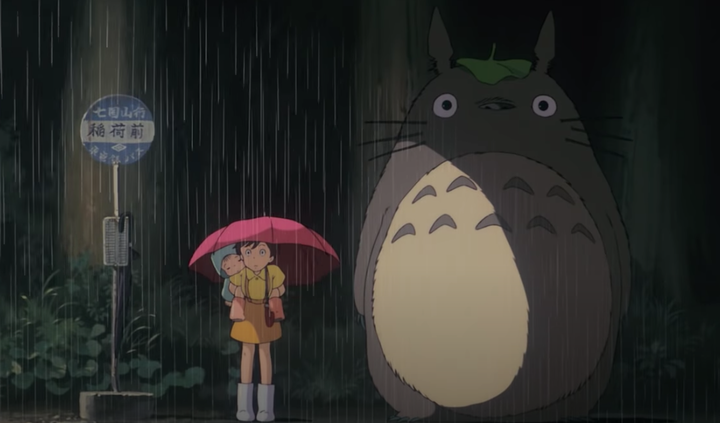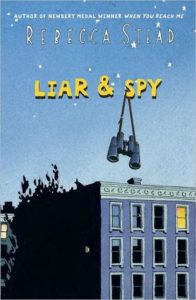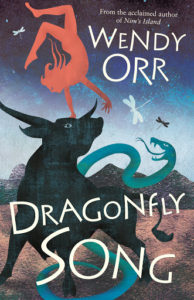– I’m glad I deleted my Twitter account a few years ago. Perhaps the authors now leaving Twitter will turn to blogging? I’d like that. I like reading long, thoughtful, book-related posts, although of course, blog posts can also consist of miscellaneous snippets of articles and commentary and videos …
– This is worrying. American publishers are increasingly adding “morals clauses” to their contracts so they can terminate contracts and force authors to pay back advances if the author is accused of “immoral, illegal, or publicly condemned behavior”.

As the Authors’ Guild points out,
“individual accusations or the vague notion of ‘public condemnation … can occur all too easily in these days of viral social media.
Now publishers apparently want the ability to terminate an author’s contract for failing to predict how their words will be received by a changing public. This is a business risk like any other, yet publishers are attempting to lay it solely at authors’ feet. Worst of all, morals clauses have a chilling effect on free speech. A writer at risk of losing a book deal is likely to refrain from voicing a controversial opinion or taking an unusual stand on an important issue.”
– In the UK, publishing is in a “parlous state”, writes a pseudonymous publishing insider:
“just warning people off books isn’t sufficient. The author in question needs to be punished for their crime, be it transphobia, racism, misogyny or whatever. Never mind that we can all take offence at anything or nothing; that one person from a particular group who is offended by a story does not equal all people from that group being thus offended; that a simple way to not be offended is simply not to buy the book.
No, that is no longer enough. The author must be hounded on social media, their publishers & agents must be emailed, and the sinner in question must then atone for their sins by publicly apologising, “educating” themselves (which to me is the language of the gulag) and rewriting the book to remove the offence…
To know that so many people live in fear of saying the wrong thing in an industry which should be celebrating dissent and freedom of speech is something I find deeply shocking. It has come about because a minority of people with the loudest voices have bullied their way into the publishing world and insisted that only they are on the path of true righteousness.”
– Meanwhile, in Hong Kong, five brave, outspoken speech therapists have been jailed for publishing a series of children’s books featuring sheep fighting back against marauding wolves:
“Judge Kwok said in his verdict that ‘children will be led into the belief that the PRC Government is coming to Hong Kong with the wicked intention of taking away their home and ruining their happy life with no right to do so at all,’ referring to the People’s Republic of China.
Defendant [Melody] Yeung quoted U.S. civil rights leader Martin Luther King saying ‘a riot is the language of the unheard.’
‘I don’t regret my choice, and I hope I can always stand on the side of the sheep,’ Yeung said.”
– Looking for Alibrandi is thirty years old this year and Melina Marchetta discusses it here. There’s also an interesting new theatre adaptation of the book, written by an Indian Tamil migrant, who grew up in Kuwait and moved to Perth as a teenager, and starring Chanella Macri, an Italian Samoan actor, as Josie Alibrandi.
 As Pia Miranda, who played Josie in the film version, says,
As Pia Miranda, who played Josie in the film version, says,
“It’s a migrant story that transcends being Italian. And a lot of the people that have spoken to me over the years [and said] that it means a lot to them are from different backgrounds, whether it be people from Muslim or Asian backgrounds.”
– Anne Tyler has a new novel out, French Braid. I’m always happy to see an interview with her, even though I suspect she hates doing them. Here she discusses, among other things, ‘cancel culture’ and cultural appropriation and how she’s an accidental novelist:
“I never planned to be a writer at all. For years, maybe even today, sometimes I think, ‘What exactly am I going to do with my life? What is my career going to be? I’m only 80, for God’s sake!’”
– Fans of Octopolis will enjoy this update on the residents’ behaviour: “Sometimes This Octopus Is So Mad It Just Wants to Throw Something”. I highly recommend Peter Godfrey-Smith’s book on octopus intelligence (and belligerence), Other Minds: The Octopus and the Evolution of Intelligent Life.
– The New Yorker has a fascinating article on the creators of the Choose Your Own Adventures books.
– Look at this amazing Ghibli quilt! Look at Calcifer and Jiji and No-Face and all the little soot sprites! She’s also made a Totoro quilt.
– I’m not a fan of John Hughes films, except for Ferris Bueller’s Day Off and only because of the museum scene, so I enjoyed this thoughtful article on Ferris, Cameron and the power of art museums. And yes, this IS related to books, because the painting Cameron gazes at also features in Rebecca Stead’s Liar & Spy. If you clicked on the video in that article, you’re probably now humming the lovely instrumental music from that scene, so here it is, The Dream Academy’s cover version of Please, Please, Please, Let Me Get What I Want:




 I began the year engrossed in Tana French’s
I began the year engrossed in Tana French’s  I enjoyed Kate Constable’s new middle-grade novel,
I enjoyed Kate Constable’s new middle-grade novel,  However, my favourite children’s read was, unexpectedly, a novel told partly in verse about a girl living in a Bronze Age Mediterranean culture ruled by superstition. Dragonfly Song by
However, my favourite children’s read was, unexpectedly, a novel told partly in verse about a girl living in a Bronze Age Mediterranean culture ruled by superstition. Dragonfly Song by  However, I’ve just finished Howl’s Moving Castle and finally understand what DWJ’s fans are going on about, because this book was utterly charming – funny, clever, warm-hearted and featuring some of the most endearing characters I’ve come across in children’s fantasy. The dreaded Wizard Howl, rumoured to suck the souls from innocent young girls or maybe eat their hearts, turns out to be far less evil than suspected, although with enough flaws to fill a (moving) castle. There’s also Calcifer, his adorably grumpy demon, Michael, the anxious apprentice and Sophie, the valiant heroine placed under a curse by a wicked witch. The author has a lot of fun playing with fantasy conventions – seven-league boots, magical disguises, mysterious spells, supernatural battles, kings sending magicians on dangerous quests and so on – although my favourite part was when the magical world collided with the real one. In one chapter, Sophie and Michael accompany Howl to his original home in the “land of Wales”. Sophie is baffled by the clothes (Howl dons a baggy jacket with the strange inscription “WELSH RUGBY”) and by the technology, which includes magical boxes with moving pictures, the boxes growing “on long, floppy white stalks that appeared to be rooted in the wall”. Throughout, the plot twists and turns in a very inventive and complicated manner, but it all ends as it should, with evil vanquished and the good living happily ever after.
However, I’ve just finished Howl’s Moving Castle and finally understand what DWJ’s fans are going on about, because this book was utterly charming – funny, clever, warm-hearted and featuring some of the most endearing characters I’ve come across in children’s fantasy. The dreaded Wizard Howl, rumoured to suck the souls from innocent young girls or maybe eat their hearts, turns out to be far less evil than suspected, although with enough flaws to fill a (moving) castle. There’s also Calcifer, his adorably grumpy demon, Michael, the anxious apprentice and Sophie, the valiant heroine placed under a curse by a wicked witch. The author has a lot of fun playing with fantasy conventions – seven-league boots, magical disguises, mysterious spells, supernatural battles, kings sending magicians on dangerous quests and so on – although my favourite part was when the magical world collided with the real one. In one chapter, Sophie and Michael accompany Howl to his original home in the “land of Wales”. Sophie is baffled by the clothes (Howl dons a baggy jacket with the strange inscription “WELSH RUGBY”) and by the technology, which includes magical boxes with moving pictures, the boxes growing “on long, floppy white stalks that appeared to be rooted in the wall”. Throughout, the plot twists and turns in a very inventive and complicated manner, but it all ends as it should, with evil vanquished and the good living happily ever after.